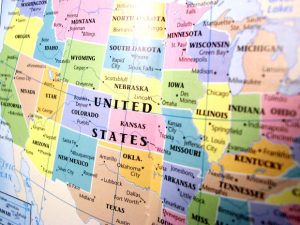Los Angeles Marijuana Lawyers: Shops are Legal, But Business Complicated
The Los Angeles marijuana lawyers at The Cannabis Law Firm have seen the cannabis community in this city and county through the legal travails of the last 20 years – from outright criminalization to quasi-legalization for medicinal use (amid constant fear of government raids) to now recreational legalization recognized by state law. Federal legalization of some form likely isn’t far off. But while Los Angeles is considered the largest and perhaps most important marijuana market in the world (several million consumers, tens of thousands of workers and billions of dollars annually generated just within these borders), navigating its regulatory guidelines is no easy feat.
Having an experienced Los Angeles marijuana attorney who understands not just the new law and local regulations but the complexity of this city’s history with the drug is imperative if you want to establish a successful business.
Technically, there are 169 licensed marijuana shops in the city of L.A. In reality, the L.A. City Controller estimates there are probably closer to 1,700 in operation. These operations may fly under the radar, but they’re taking a big risk. If there is one thing we’ve learned in our years of practicing California marijuana law, it’s that nothing is certain. However, your best hope is a cannabis law firm dedicated to helping you navigate the road map to success.
Los Angeles Marijuana Lawyers and the Regulatory Business Maze Continue reading
 Cannabis Law Group's Medical Marijuana Legal Blog
Cannabis Law Group's Medical Marijuana Legal Blog












 Washington, where requirements for marijuana businesses are strict, yet muddled. What started as a residency restriction meant to control big outside mega corporations from putting local businesses at a disadvantage has led to corporations researching ways to exploit residency loopholes and limiting who longtime residents can bring on as partners. Now, due to unclear definition of what qualifies a person for residency, some are concerned how to prove their status.
Washington, where requirements for marijuana businesses are strict, yet muddled. What started as a residency restriction meant to control big outside mega corporations from putting local businesses at a disadvantage has led to corporations researching ways to exploit residency loopholes and limiting who longtime residents can bring on as partners. Now, due to unclear definition of what qualifies a person for residency, some are concerned how to prove their status. Agriculture is working on a system of regulations for naming craft cannabis strains. According to a report from
Agriculture is working on a system of regulations for naming craft cannabis strains. According to a report from